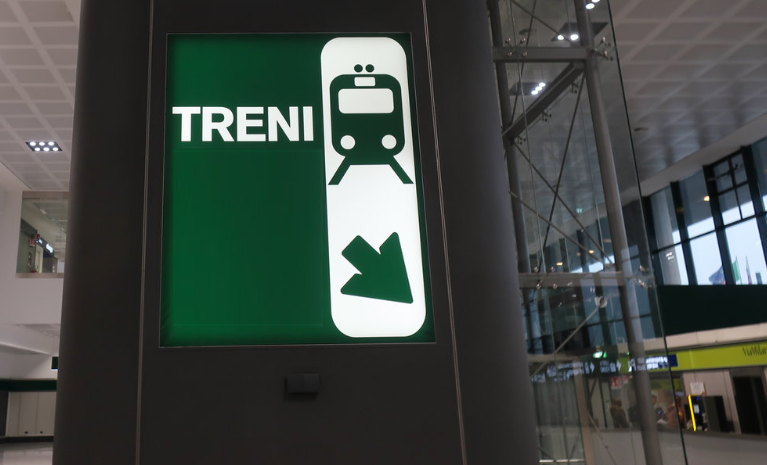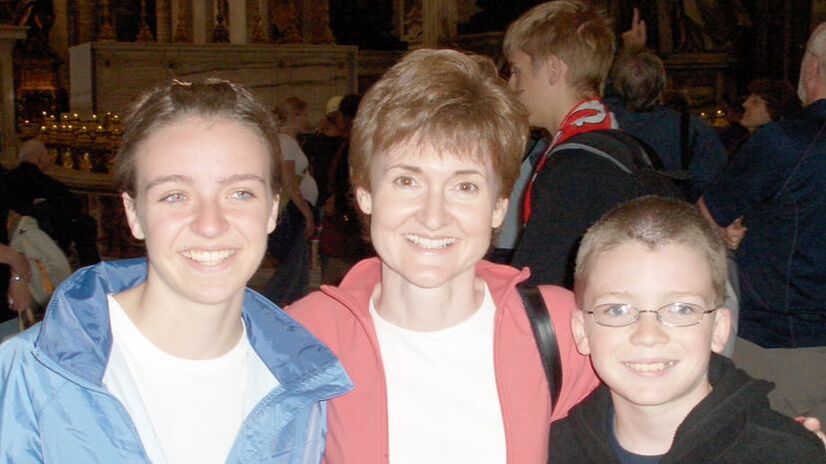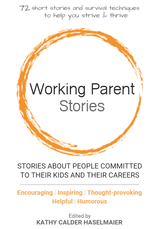|
When our kids were ten and 15 we took a family trip to Europe. It felt like a big deal at the time, and looking back on the trip now it was a big deal. At least for us. It was the first time the kids had been outside the US, and we'd all spent months planning and talking about the trip. My husband and I had done a fair amount of international travel for business, and we thought it was important for the kids to have some of those experiences too. Our adventure started in Rome. After flying all night, we landed at the airport where we were to board a train into the city so we could check into our hotel. After retrieving our luggage (another funny story) we went in search of the train. Still a bit groggy and disoriented, we pointed out airport "differences" to our kids, as we all took in the sights and sounds of our surroundings. After only a few minutes we had to stop and regroup. We just couldn't seem to find the train station that the guidebook assured us was right in the airport. This was in 2006, so pre-smart phones, which meant we had translation books and hard copy guidebooks. My husband and I engaged in a bit of intense debate as we tried to determine the best way to find the elusive train station. At this point, our ten year old son, who is never afraid to speak up, suggested that maybe we should head in the direction of the train icon posted on some of the airport signage. My husband and I looked at each other and laughed as we told him, "Good idea!" We then wondered how we'd managed to miss that very obvious clue ourselves. Our belief was that we were the European travel "experts", and we hadn't left much space for the kids to become experts themselves. We hadn't even recognized them as valued members of the "team". That experience, combined with the recognition and observation that many parents (ourselves included) insist on being the experts, leaders, and sometimes even saviors when they interact with their kids, changed the way we traveled as a family from that point on. We recognized that the kids were often as capable as we were, and we gave them opportunities to prove it. We all seem to want our kids to excel in so many areas ... unless we're around. If we're around, we often reserve the role of "expert" for ourselves. It feels so darn good. For us. But what does it do for them?
0 Comments
Leave a Reply. |
The StoriesArchives
March 2022
Categories
All
|
Photos from barnimages.com, marcoverch, truewonder, donnierayjones, marcoverch, shixart1985, Gustavo Devito, edenpictures, nan palmero, quapan, The Pumpkin Theory, bark, opassande, Semtrio, Ivan Radic (CC BY 2.0), verchmarco (CC BY 2.0), Didriks, shawnzrossi, shixart1985 (CC BY 2.0), madprime, marksmorton, CT Arzneimittel GmbH, NwongPR, franchiseopportunitiesphotos, anotherlunch.com, jdlasica, wuestenigel, Frinthy, romanboed, Doris Tichelaar, quinn.anya, A_Peach, VisitLakeland, MEDION Pressestelle, Darren Wilkinson, bratislavskysamospravnykraj, Anthony Quintano, Danielle Scott, pockethifi, Bridgette Rehg, Martin Pettitt, PersonalCreations.com, wuestenigel, Thad Zajdowicz, archer10 (Dennis) 139M Views, Infomastern, beltz6, The National Guard, futurestreet, daveynin, OIST (Okinawa Institute of Science and Technology), Rinet IT, shixart1985, mikecogh, JeepersMedia, Ryan Polei | www.ryanpolei.com, Jake.Christopher., aleksandrajovovich, thepeachpeddler, wwward0, flossyflotsam, Got Credit, Senado Federal, Corvair Owner, lookcatalog, moodboardphotography, dejankrsmanovic, Carine fel, ElleFlorio, {Guerrilla Futures | Jason Tester}, greg westfall., Arlington County, mariaronnaluna, quinn.anya, wuestenigel, Tayloright, insatiablemunch, MrJamesBaker, Scorius, Alan Light, Monkey Mash Button, www.audio-luci-store.it, wohlford, Vivian Chen [陳培雯], okchomeseller, BoldContent, Ivan Radic, verchmarco, donnierayjones, Czar Hey, US Department of Education, Andrew Milligan Sumo, Michel Curi, anotherlunch.com, ProFlowers.com, Cultural viewpoints from around the world, alubavin, yourbestdigs, Rod Waddington, Tayloright, Wonder woman0731, yourbestdigs, donald judge, Thomas Leth-Olsen, Infinity Studio, shixart1985, wuestenigel, francesbean, Roger Blackwell, MrJamesBaker, Luca Nebuloni, MFer Photography, erinw519, boellstiftung, North Carolina National Guard, A m o r e Caterina, MrJamesBaker, bellaellaboutique, Free For Commercial Use (FFC), Prayitno / Thank you for (12 millions +) view, wuestenigel, Matt From London, MadFishDigital, Kompentenzzentrum Frau und Beruf, mikecogh, CreditDebitPro, marciadotcom, Mr.Sai, _steffen




 RSS Feed
RSS Feed